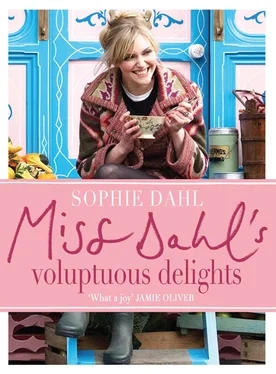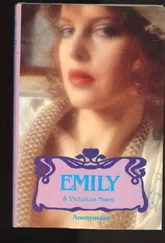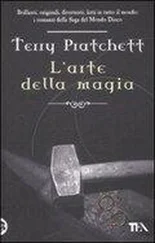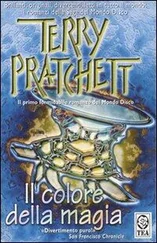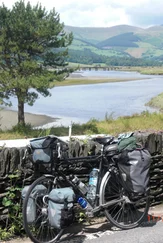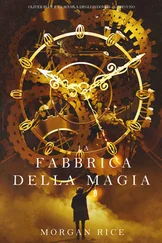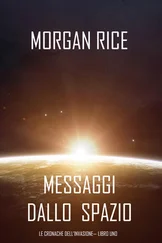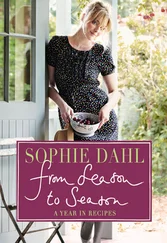I grew up surrounded by food lovers; my parents Tessa and Julian were natural cooks and both sets of grandparents were known for a full table. My earliest memories of food involve my paternal grandmother Gee-Gee, (an ex chorus-girl dancer, five foot of endless leg, saucer-blue eyes and marcelled blonde waves) who lived on the Sussex coast in a house surrounded by whispering trees. My dad and I would drive down from London, a journey that felt decades long to a child, but the monotony was forgotten as soon as Gee-Gee swung open the front door and we were embraced; first by a pleasurable blast of something roasting, and then by her. These lunches usually incorporated roasted something with gravy, Yorkshire pudding, roast potatoes, parsnips, cauliflower cheese, and definitely puddings: treacle tart with a cool lick of cream to sophisticate and sharpen the sugar, incredible crumbles, swimming in thick vanilla custard. Every day there was proper tea at Gee-Gee’s, with homemade scones, ginger cake and her best bone-thin china. She understood absolutely everything about life, except three things:
1 Why anyone, most specifically me, would become a vegetarian.
2 Why it was difficult for hunger to be limited to three times a day, with a little pang left over for tea, devoid of desire to pick between meals.
3 The attraction of violently-coloured eye shadow to a sixteen-year-old. (‘Like an ancient barmaid,’ she’d sniff at my peacock-feather-green eyelids.)
Gee-Gee was brilliant; she taught me to bake without fuss. I watched the quiet joy she derived from feeding those she loved and I took it with me like a tattoo into adulthood, making idle breakfasts and Sunday lunches, Indian summer dinners and rainy day teas, revelling in the simple pleasure cooking for people I cared about brought me.
If anything, this book is a total homage to my family and the appetite and culinary legacy they left me with: Gee-Gee; my maternal grandmother Patricia of Knoxville, Tennessee, with her fondness for grits, collard greens, and lemon chiffon pie; my Norwegian grandfather, Roald, and his vast appreciation for chocolate, borscht and burgundy; his second wife, Felicity, who in his absence continues to keep his table with the same spirit and standard; my aunts and uncle, fine cooks all; my mum and dad, my brothers and sister; each and every one of them has an influence in here somewhere.
I am not an authority on anything much, but I do feel qualified to talk about eating. I’ve done a lot of it. In my time I have been both round as a Rubens and a little slip-shadow of a creature. Weight, and the ‘how to’ maintenance of it, seems to be something that preoccupies a lot of people, and because I lost some, rather publicly, it is something people feel free to ask me about. I have had conversations about weight with strangers in supermarkets, on aeroplanes and in bathroom queues. I could talk until the cows come home about food and recipes and bodies and why as people we are so consumed by the three. I have sat next to erudite academic types at dinner, steeling myself for a conversation that will doubtless include something I know nothing about, like physics, only to be asked in a surreptitious tone, ‘How did you get thinner?’ At which stage I will laugh and say, ‘Well, it all started like this…’
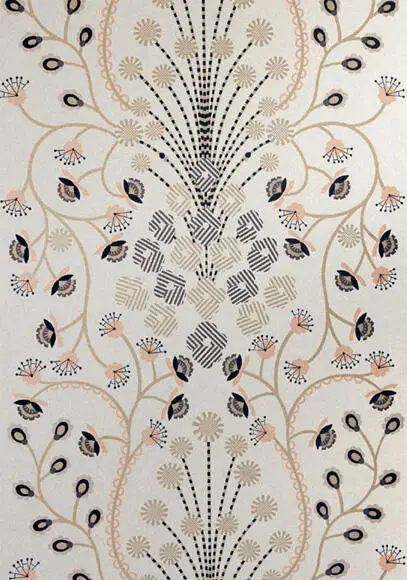
We begin in the autumn because that’s when everything changed. Autumn is a season I love more than any other; for its smoky sense of purpose and half-lit mornings, its bonfires, baked potatoes, nostalgia, chestnuts and Catherine wheels.
It was late September. I was eighteen. I had experienced a rather unceremonious exit from school. I had no real idea about what I wanted to do, just some vague fantasies involving writing, a palazzo, an adoring Italian, daily love letters and me in a Sophia Loren sort of dress, weaving through a Roman market holding a basket of ripe scented figs. I had just tried to explain this to my mother over lunch at a restaurant on Elizabeth Street in London. She was not, curiously, sharing my enthusiasm.
‘Enough,’ she said. ‘No more alleged history of art courses. You’re going to secretarial college to learn something useful, like typing.’
‘But I need to learn about culture!’ She gave me a very beady look.
‘That’s it,’ she said. ‘No more. End of conversation.’
‘But I…’ The look blackened. I resorted to the historic old faithful between teenagers and their mothers.
‘God…Why don’t you understand? None of you understand me!’
I ran out into the still, grey street, sobbing. I threw myself on a doorstep and lit a bitter cigarette. And then something between serendipity and Alice in Wonderland magic happened.
A black taxi chugged to a halt by the doorstep on which I sat. Out of it fell a creature that surpassed my Italian imaginings. She wore a ship on her head, a miniature galleon with proud sails that billowed in the wind. Her white bosom swelled out of an implausibly tiny corset and she navigated the street in neat steps, teetering on the brink of five-inch heels.
Her arms were full to bursting with hat boxes and carrier bags and she was alternately swearing, tipping the taxi driver and honking a great big laugh. I remember thinking: ‘I don’t know who that is, but I want to be her friend.’ I was so fascinated I forgot to cry.
I stood up and said, ‘Do you need any help with your bags?’
‘Oh yes!’ she said. ‘Actually, you are sitting on my doorstep.’
‘So, why were you crying?’ The ship woman said in her bright pink kitchen. It transpired that she was called Isabella Blow; she was contributing editor at Vogue and something of a fashion maverick. We’d put the bags down and she was making tea in a proper teapot.
‘I was crying about my future.’ I said heavily. ‘My mother doesn’t understand me. I don’t know what I’ll do. Oh, it’s so awful.’
‘Oh don’t worry about that. Pfff!’ she said. ‘Do you want to be a model?’
If it had been a film, there would have been the audible ting of a fairy wand. I looked at her incredulously. ‘Yes,’ I said, thinking of avoiding the purdah of shorthand. My next question was, ‘Are you sure?’
‘Now put on some lipstick and we’ll tell your mother we’ve found you a career’
The ‘Are you sure?’ didn’t spring from some sly sense of modesty; it was brutal realism. And not of the usual model standard ‘I was such an ugly duckling at school, and everyone teased me about how painfully skinny I was’ kind.
Bar my height, I couldn’t have looked any less like a model. I had enormous tits, an even bigger arse and a perfectly round face with plump, smiling cheeks. The only thing I could have possibly shared with a model was my twisted predilection for chain smoking.
But for sweet Issy, as I came to know her, none of this posed a problem. She saw people as she chose to see them; as grander cinematic versions of themselves.
‘I think,’ she said, her red lips a post-box stamp of approval, ‘I think you’re like Anita Ekberg.’ I pretended I knew whom she was talking about.
‘Ah yes. Anita Ekberg.’ I said.
‘Now put on some lipstick and we’ll go and find your mother and tell her we’ve found you a career.’
We celebrated our fortuitous meeting, with my now mollified mother in tow, at a Japanese restaurant in Mayfair, toasting my possible new career with a wealth of sushi and tempura.
‘Gosh, you do like to eat,’ Issy said, eyes wide, watching as my chopsticks danced over the plates. I would have said yes but my mouth was full.
Читать дальше
